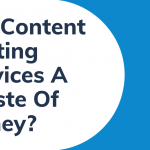
Solidifying a marketing strategy for your company will ensure that your conversions will be higher, and that means more sales on your products/services.
A marketing strategy is a written document that outlines a plan for carrying out marketing initiatives for a business, product, or service. It should state what each stage of the strategy is, how it ties into the overall objectives of the business, and the techniques that will be used to accomplish these goals.
A marketing strategy is a business plan that focuses on a company’s customers and its place in the marketplace. The heart of a marketing strategy is its target market, which is the group of customers or consumers to which the business aims its products.
It also includes the overall vision of the company, its mission statement, and why it is better than its competitors. A marketing strategy should be reviewed on an annual basis so the company can make adjustments as necessary.
Inexperienced businesses often don’t have an effective marketing strategy because they don’t know enough about their target audience, or what they want to buy. A successful marketing strategy involves knowing your target audience, how you can reach them, and what you can offer them that your competitors can’t.
A good marketing strategy will help you:
- Understand your target audience, their wants and needs, and how best to reach them
- Develop a strong brand for your business
- Create a plan for increasing sales and repeat customers
A good marketing strategy will also help you determine your pricing structure and improve customer service.
An effective marketing strategy defines the techniques that the business will use to successfully market itself. The marketing strategy often includes the product, pricing, and promotion of the company’s products or services.
While most companies have multiple strategies, such as an international marketing strategy or a customer retention marketing strategy, there is typically one strategic focus at any given time. A marketing strategy can be modified to fit the needs of a particular business or industry.
Tailoring a Marketing Strategy For Your Business
Not all businesses require the same type of marketing strategy. Each industry has its own unique characteristics that affect which kinds of marketing strategies are best for success. For example, Coca-Cola uses different promotional techniques than Apple does to sell its products because Coke sells soft drinks while Apple sells computers and software.
In addition to industry differences, businesses should take into account their own size and resources when creating a marketing strategy. Large companies with extensive resources may be able to choose from more options for reaching their customers, such as advertising in magazines, billboards, and on television.
Smaller companies with fewer resources may be limited to word-of-mouth advertising or Internet marketing campaigns.
What Should A Marketing Strategy Include?
Think of a marketing strategy as the roadmap you need to take before you even begin your business, and as a guide to help ensure that your business decision is based on solid thinking.
The marketing strategy should include:
Objective: What the company wants to achieve with their marketing plan
Target Audience: Who they are aiming the product/service at.
Competition: What other products are already out there in the marketplace, what are their weaknesses and strengths?
Positioning: How will you differentiate yourself from your competitors? What makes you unique?
Key Messages/Vocabulary: Your key messages are what consumers remember most about your company. They are easy to understand and make sense to your target audience. These key messages should be consistent throughout all communications for example billboards, print ads, websites, etc.
A well-defined strategy should guide all of the organization’s marketing efforts. In addition, it should address ways to improve performance, develop different strategies for different markets, and allocate resources effectively.
Marketing strategy development is part art and part science. It requires:
- A thorough understanding of your organization’s mission, vision, and values
- A clear understanding of current and potential customers
- An appreciation of your competitors’ strengths and weaknesses
- A solid understanding of marketing communications best practices
It also requires good judgment—the kind that comes only from experience, trial and error, testing and re-testing.
What Is Inbound Marketing?
Inbound marketing is a type of marketing that focuses on attracting customers through content rather than traditional advertising methods (like direct mail, cold calls, and print ads).
Inbound marketing helps you build trust with potential customers by providing them with valuable information, and it encourages them to take action (such as requesting a quote or making a purchase) without being pushed.
This method of marketing is more cost-effective than standard outbound marketing because it doesn’t require the help of a third party to distribute the content.
The goal of inbound marketing is to attract customers who will buy your product in the future because they’ve already expressed interest in your business. By understanding your audience’s needs and creating content that addresses their questions, you can develop an inbound marketing strategy that will attract customers to your website from search engines like Google.
The purpose of an inbound marketing strategy is to drive potential customers to your website through search engine optimization (SEO), social media, content creation, and email campaigns.
In order for this strategy to be successful for your business, you’ll need to create a variety of high-quality content that answers questions your target audience has about your business and its products.
The fundamental principle of inbound marketing rests on the notion that a business attracts customers by providing them with valuable content. In exchange, customers reward the business by sharing their positive experiences with other potential customers.
Inbound marketing is built on trust and relationships, so that’s why you want to build your website around your audience and not vice versa.
What Is Content Marketing?

Content marketing is a strategy that helps businesses with customer retention and acquisition by creating relevant content for their target audience. It includes the creation of text, audio, video or images to be published on a website or blog.
Content marketing is also known as inbound marketing. The strategy focuses on attracting customers through content they want to read, watch or listen to. Content marketing is also referred to as “owned media” because it’s produced by the company itself and not by a third-party publisher.
Inbound marketing helps businesses increase brand awareness, generate leads, and acquire new customers through compelling and useful content.
The main goals of content marketing are:
- Build trust with the customers by providing them with useful information and building credibility.
- Attract new clients through search engine optimization (SEO) since it’s free advertising for your business.
- Improve conversions by improving website search engine rankings, generating traffic from social media sites, and creating referral traffic from other websites linking back to yours.
- Drive more sales through email subscriptions, boosting conversion rates, and increasing average order value — how much you’re making per sale.
- Generate leads through blogging and developing an email list so your company can communicate directly with its audience about products, services, or events that are relevant to them.
Content marketing has become a powerful tool to build relationships, trust, reach potential customers, and, in turn, generate revenue.
It is a strategic initiative intended to drive action by educating (and entertaining) your target market about your products or services in order to convert them into paying customers.
A content marketing strategy must be an integral part of any overall digital marketing strategy because it drives awareness of your business, generates leads, builds up trust, and increases engagement with your products or services.
Content Marketing can help you connect with your customers on an emotional level and build relationships that will last for years. It is about establishing yourself as an expert in your field by producing high-quality content that educates, motivates, and inspires ideas.
It is not about promoting yourself or your brand but rather raising awareness of the benefits you offer.
Content Marketing Strategies
There are several ways to create content to promote your business but here are some common strategies:
- Writing blog posts (long-form)
- Ebooks (compilation of blog posts)
- Podcasts,
- Videos
- Case studies
How Do I Develop A Marketing Plan?
If you’re a part of the 40 percent of companies that don’t have a marketing strategy, you may be wondering how to create one.
The truth is that marketing strategy isn’t rocket science. It’s actually more like cooking. More importantly, it’s as vital to your business as fire is to cooking. A good marketing strategy can help you bring in more customers and keep them coming back.
Treat your marketing plan like the recipe for a dish you’re preparing for a dinner party. You wouldn’t start with the main course before planning out your appetizers and salad, would you? So why start with the promotion of your products or services?
Start by making sure that everyone involved in creating your marketing strategy is on the same page so that no one creates an advertising campaign that contradicts what someone else is doing. Make sure everyone understands his or her role in creating and executing the strategy and what his or her goal is (a new customer? repeat business?).
Your customers fall into three categories, based on where they are in their relationship with your company:
New prospects: People who have never heard of you before
Longtime customers: Those who have been buying from you for several months or years
VIPs: People who buy from you
Building a Marketing Plan A marketing strategy is the first step in creating your marketing plan. This is a document that outlines the goals and objectives of your marketing effort and provides the direction for everything that follows, including your product or service development and promotion plans.
The process of developing a marketing strategy is simple:
1. Identify Your Target Audience.
- Once you’ve picked your target market and have defined your target customer, the next thing to do is to determine how you’re going to reach them.
2. Determine What They Want and How You Can Deliver It to Them.
3. Identify How You Are Different From Your Competitors.
4. Determine What Success Will Look Like.
5. Create an Action Plan to Achieve the Desired Results.
Should I Use Content Writing In My Marketing Strategy?

Content is one of the most beneficial tools you can use to market your business. Great content helps you keep in contact with your customers and potential customers, tell them about your products and services and even promote new products or offers. Content marketing is a powerful tool for any business owner seeking to grow their business, expand their customer base or increase brand awareness.
Using Content for Marketing Your Business
Content marketing is designed to attract audience attention, convert prospects into leads, leads into customers, and customers into repeat buyers. It’s more than just putting content on your website – it’s an effective strategy that allows you to put valuable content in front of your target audience.
Why Is Content Marketing So Powerful?
Content marketing is powerful because it allows you to build trust with prospective customers. Your unique perspective on your industry or niche gives you a leg up on the competition, but writing it all down makes you appear knowledgeable and credible. People are naturally drawn to individuals or brands that they feel they can trust, so using content as a marketing tool lets you build relationships with prospective customers while increasing brand awareness.
Once you’ve built that relationship, it’s easier to use other forms of online marketing to sell additional products and services.
The marketing strategy is the engine that drives your content marketing. It serves as an outline that ensures you’re producing valuable and consistent content in a way that’s aligned with your goals.
This strategy will help guide your efforts, and it should be updated regularly to reflect your changing goals and needs. In this strategy, you’ll define:
- Who you’re writing for: Consider your audience’s age, gender, income level, interests, and behaviors. You may even want to conduct some market research to better understand them.
- What you’re writing about: Define the reasons why people need your product or service.
- What problems will it solve?
- How will it make their lives easier?
- Who’s responsible for what: Make sure everyone knows their role so there are no gaps in coverage.
- How often you’ll post: This is based on how frequently people need information from you, how often they consume information, and how much time you have to create the content.
- What kind of content you’ll publish: Blog posts, videos, infographics, or a mix?
- The tools you’ll use
- What tools are available to help you create content faster? It can be a good idea to use a variety of tools so you don’t get stuck in a rut.
All of these dynamics must be considered for an effective marketing strategy that incorporates content writing into the mix.
What’s The Best Content Writing Strategy For My Marketing Plan?
Having a great website with quality content is not enough to succeed in today’s competitive digital world. If your goal is to successfully market your business through content, you need a solid strategy.
Attracting visitors to your website is only half the battle; you also have to convert those visitors into leads and customers. That’s why it’s important to develop a marketing strategy that prioritizes both long-term and short-term goals.
Trying to do everything at once won’t work, so it’s important to prioritize the elements of your strategy. Start by defining the objectives you want to accomplish and then establish a timeline for meeting those objectives.
As you develop this strategy, don’t forget that it can be adjusted as needed over time. You won’t be successful overnight, and as you find out what works and what doesn’t, make sure you make adjustments accordingly.
Before you get started, think about your objective. Everyone’s content strategy is different, but at its core, every strategy is based on one of five objectives:
1) To increase site traffic;
2) To engage current and prospective customers with compelling content ;
3) To build relationships and trust with prospects to convert them into customers ;
4) To provide feedback and improve products or services based on customer needs; and
5) To create a content marketing machine that produces consistent and ongoing leads, sales, and revenue.
Once you pick a strategy, you’ll have to decide how much time to allocate toward it. The more time you can spend, the better results you’ll get. For example, if your goal is to increase traffic by 50 percent per month over the next quarter, it might make sense for your content writer to spend 30 hours per week for 4 weeks creating content for that campaign.
However, if your goal is to establish yourself as an industry expert — a daunting task that will take several years — then a few hours each month may be sufficient.
Content marketing is a way to build relationships with your audience by publishing valuable, relevant, and consistent content on a platform that they already use.
Tailoring your process to the needs of your ideal customer will help you attract the right audience, engage them in the right way, and convert them into paying customers.
Final Thoughts
If you’re in the midst of developing a marketing plan, you’ll want to include a content writing strategy as part of it. Content writing is a useful way to grow your business and increase the organic traffic you refuse.
Still Writers has been providing professional content writing services for years, and they know more than anyone how effective the right marketing strategy is. Contact Still Writers today to get started.
Recent Posts
- What Is The Cost of Content Writing Services?
- 10 Essential Tips for Crafting Engaging Website Content
- Grow Your Brand With Still Writers
- The Power of Content Writing: Elevating Your Online Presence
- How Copywriters Can Help Generate Organic Traffic

Quinn is a professional, multi-faceted writer with a background and professional knowledge base that spans many industries. He goes above and beyond in everything he does and has an attitude of perseverance and dedication.


